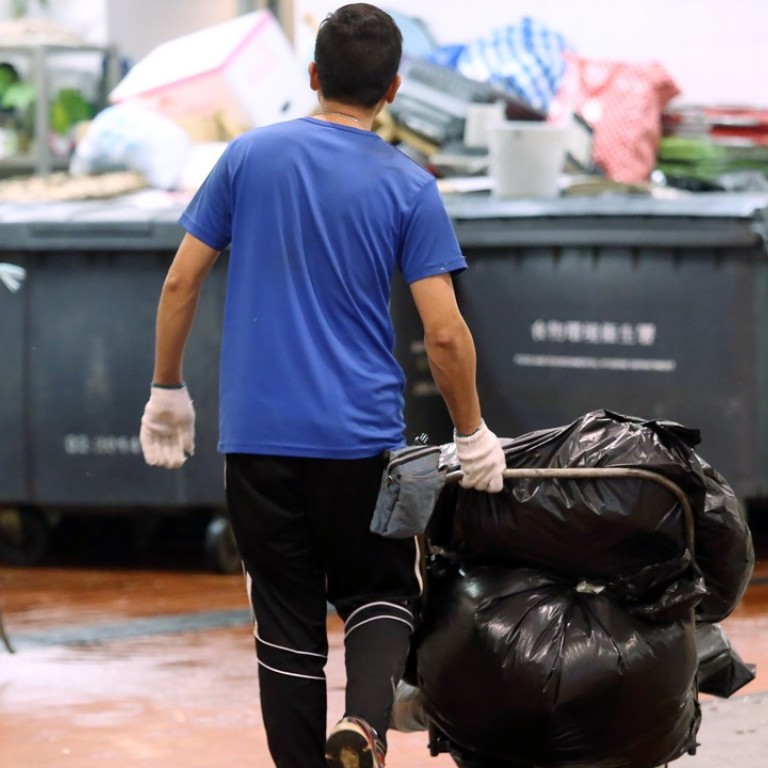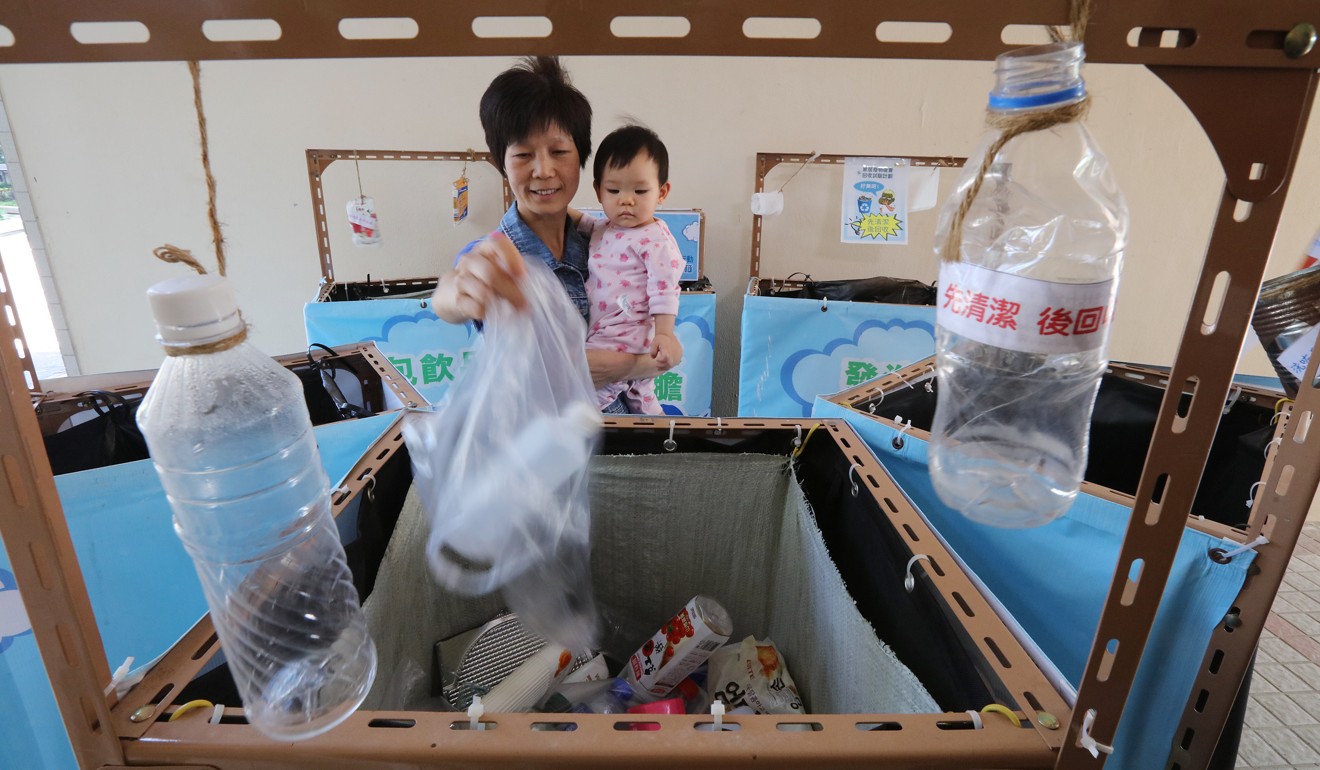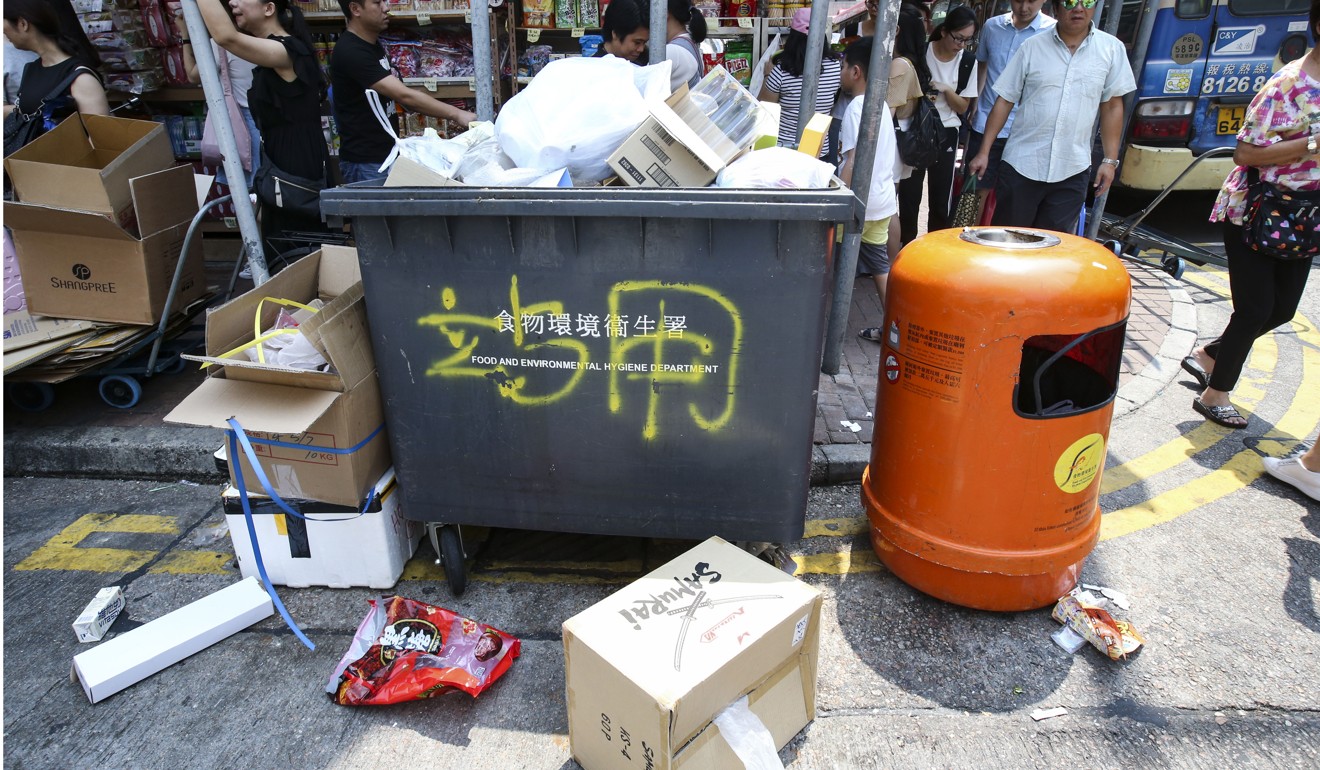
Lawmakers urge incentives, not only punishments, in Hong Kong’s waste charging scheme
Changing the behaviour of city residents on rubbish will take two-pronged approach, legislators argue
Hong Kong lawmakers remain sceptical over how a proposed “polluter pays” scheme can nudge residents into changing their behaviour on waste if the policy is all stick and no carrot.
Questions were raised by both opposition pan-democrat and pro-establishment lawmakers at a meeting of the environmental affairs panel at the city’s legislature on Monday.
The doubts were on display just days after the government announced a major expansion of the waste levy mechanism, and weeks before a draft amendment bill was to be tabled for scrutiny.
“I support the polluter pays principle but until now the government has only been talking about [punitive] charges. If you charge people money, we’ll only see people dodge it by taking rubbish somewhere else or fly-tipping,” said panel member and pro-establishment legislator Gary Chan Hak-kan.

The lawmaker suggested the government provide financial incentives such as subsidies for electricity or water bills or property rates for those producing less waste.
“Perhaps adopting a two-pronged approach of punitive measures and rewards would be more effective,” Chan said. “The government should be providing more financial incentives to encourage people to generate less waste.”
Last week the city’s Environment Bureau expanded the proposed charging mechanism to include more waste producers under an arrangement whereby levies are charged per rubbish bag. Other waste producers will pay according to weight via a separate “gate fee” arrangement.
‘Polluter pays’ waste scheme expanded with 80 per cent of Hong Kong’s rubbish going into prepaid bags
Democratic Party lawmaker Ted Hui Chi-fung questioned why the revised scheme did not incorporate proposals to both reward and punish waste producers.
“A problem you will inevitably have to face is residents being disgruntled about where the money [from levies] is being spent,” Hui said. “Is recycling being improved?”
He said the government should encourage waste reduction by using the money to provide rewards such as free rubbish bags.

But environment officials said the incentive to “dump less, pay less” was already a big enough economic carrot.
“A scheme in which you receive a financial income for reducing waste may not exactly fit in with the ‘polluter pays’ principle,” said director of environmental protection Donald Tong Chi-keung.
Environment minister Wong Kam-sing cited an example to illustrate that argument.
“If my household doesn’t throw out a lot of plastic bottles, but your household does and you are now getting rewards for reducing that, how does that work? I produce less waste,” Wong said.
Hong Kong may impose waste disposal levy by second half of 2019 at the earliest, environment minister says
He disagreed with Chan’s prediction that the scheme would spur more people to dispose of waste illegally, saying that the cost of legal disposal for an average family – roughly HK$30 per month – would be a lot lower than the risks involved in rule breaking.
“The fixed penalty [for non-compliance] is HK$1,500. To get caught just once for trying to dodge the charge will incur a possible risk equivalent to five years of rubbish charges,” Wong said.
The panel was also briefed on environmental initiatives set out earlier this month in Hong Kong leader Carrie Lam Cheng Yuet-ngor’s maiden policy address.
Lawmakers raised concerns over issues such as the scrapping of the first registration tax waiver on electric vehicles, which they said was curbing growth in their numbers, and the lack of a long-term renewable energy target for the city.

